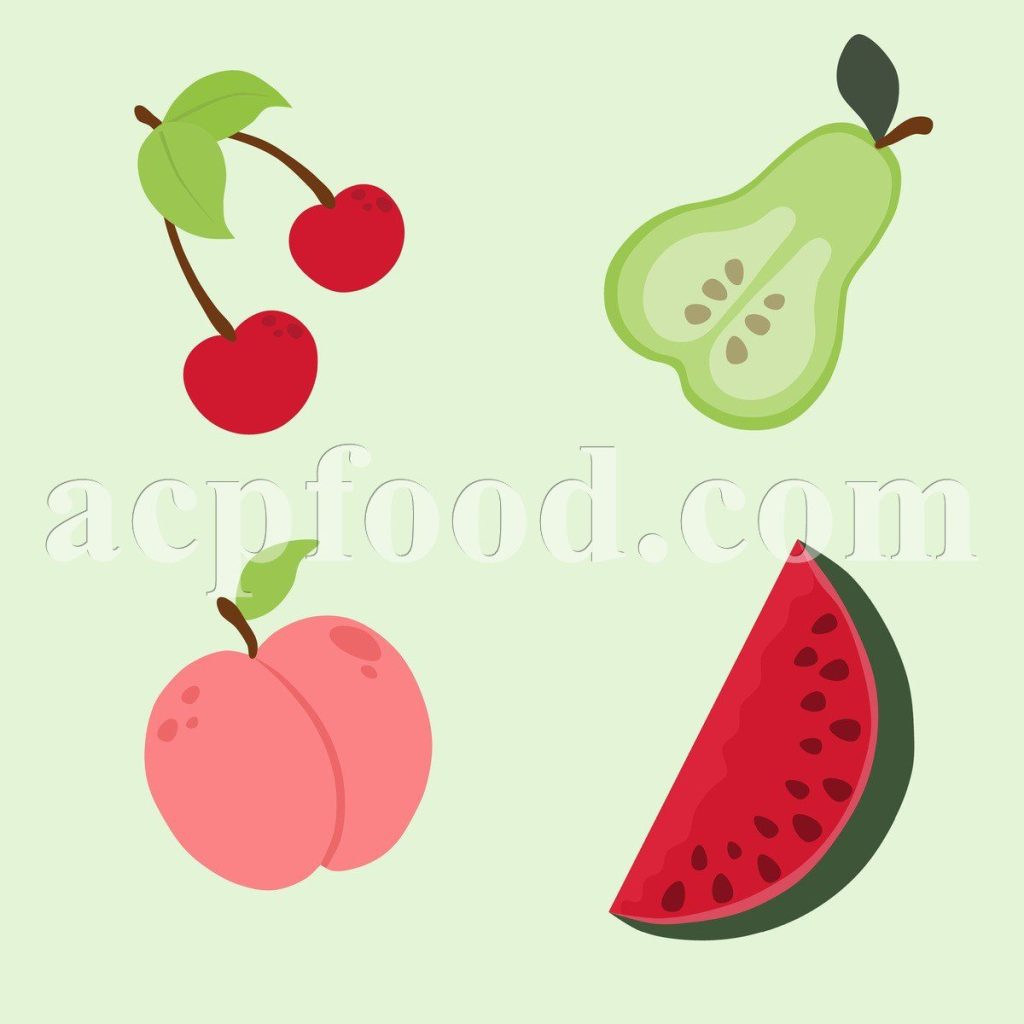Foods temperament is one of the most important element in Traditional Iranian Medicine.
Table of Contents
ToggleFoods Temperament Definition
When food or drink is eaten, it has a hot or cold effect on the body. If the food and drink have hot temperament, it gives warmth to the body, and if it has cold temperament, it gives it coldness. Therefore, it has an influence before it becomes a part of the body.
The eaten food reaches a stage where it gets changed and takes on the appearance of the part of the body’s organ. Since each part of the body has its own temperament, when the food becomes an organ, in the beginning some of it is not compatible with that organ and it needs time to harmonize with that part of the body’s temperament.
For example, lettuce and garlic: part of the substance of lettuce turns into blood in the body. Since the temperament of the lettuce is cold, the blood that came from it, although it is good blood, its coldness is more than the coldness necessary for human temperament.
The temperament of garlic is hot. If the eaten garlic leaves behind its original state and becomes blood, this blood mixes with the body organ, the heat in garlic is more than what the human temperament needs to stay in moderation.
When we call food hot or cold, we mean that it has the power to heat or cold the body. So if the food has hot temperament, it means it is hotter than the heat of our body and when it has cold temperament, it means it is colder than the coldness of our body.
Temperament is one of the most central foundations of traditional Persian medicine. Many diagnoses and treatments of Traditional Iranian Medicine doctors are based on the condition of person’s temperament.
Paying attention to the foods temperament is one of the main recommendations of these doctors. In this article, you find out the temperaments of more common foods.

The nature of the food we eat is get changed in the liver, interactions take place on it, and it takes four forms:
1- A yellow-red compound called yellow bile, which helps digestion, increases intestinal movements, opens blood circulation in the vessels, gives sharpness to mind, and increases brain function. Yellow bile is anti-infective. This is lighter from all other humors and will stand at the top.
2- The other compound is red and is called blood, which carries oxygen and nutrients to the tissues and cells of the body. And it will stand in the second layer below the yellow bile.
3- The third compound is pinkish red or pale red, which stands below the blood and is called phlegm. Its function is the impact of the mechanical and sliding work of the joints on each other, the formation of nerve tissue and brain cells, interstitial fluid, and lymphatic networks.
4- The fourth compound is dark red or crimson, which is called black bile, and stands below the phlegm and is heavier than phlegm. Its natural function is to stimulate appetite and form bone tissue.
Foods with cold and dry temperament are beneficial for Sanguine temperaments and over eating them is harmful for Melancholics. Hot and dry foods are beneficial for phlegmatic temperaments and harmful for Cholerics. Warm and moist foods are beneficial for Melancholics and harmful for Sanguines. Cold and moist foods are beneficial for Cholerics and harmful for phlegmatics.
In this post, we are going to introduce foods temperament to you, such as fruits, vegetables, common herbs, seeds, meats, dairy and grains nature, so that you can use the most suitable foods that are compatible with your temperament:

Hot and Dry Foods |
| Fruits & Vegetables | Common Herbs & Seeds | Meats & Dairy | Grains |
| Mango | Wild rue | Camel meat | Split peas |
| Bitter Almond | Lavender | Ostrich meat | Chick peas |
| Sweet Almond | Anise | Deer meat | Buckwheat |
| Wild Almond | Thyme | ||
| Cashew | Lemon balm | ||
| Eggplant | Lemon verbena | ||
| Quince | Black tea | ||
| Pistachio | Green tea | ||
| Onion | Cinnamon | ||
| Chives | Fennel seeds | ||
| Sunflower seeds and oil | Rosemary and its oil | ||
| Radish | Blackseeds and blackseed oil | ||
| Tarragon | Turmeric | ||
| Leeks | Saffron | ||
| Parsley | Cumin | ||
| Nutmeg | Caraway | ||
| Kohlrabi | Chamomile | ||
| Beetroot | Orange blossom | ||
| Mustard | Cardamom | ||
| Olive and Olive oil | Peppermint | ||
| Walnut and walnut oil | Milk vetch | ||
| Coconut and coconut oil | Vanilla | ||
| Basil | Sunflower seed | ||
| Ginger | Chilgoza | ||
| Garlic | Bay leaf | ||
| Fenugreek | Fumitory | ||
| Dill | Licorice | ||
| Honey | Maidenhair fern | ||
| Bell pepper | Marjoram | ||
| Green pepper | Milk thistle | ||
| Black pepper | Nettles | ||
| Red pepper | Oregano | ||
| Hazelnut | Purple Coneflower | ||
| Cocoa | Rose Hips | ||
| Celery | Rosemary | ||
| Cabbage | Safflower | ||
| Broccoli | Sage | ||
| Artichoke | Hypericum perforatum | ||
| Nettle | Tarragon | ||
| Cauliflower | Tribulus Terrestris | ||
| Asparagus | Truffle | ||
| Savory | Valerian root | ||
| Persian Shallot | Yarrow | ||
| Wild Pistachio | Aloe resin | ||
| Capsicum | Frankincense | ||
| Asparagus | Persian Turpentine resin | ||
| Black seed | |||
| Fennel seed | |||
| Fenugreek seed | |||
| Plantain seed | |||
| Wild Rue | |||
| Astragalus Manna | |||
| Salt Stone | |||
| Mumio | |||
| Shilajit |

| Fruits & Vegetables | Common Herbs & Seed | Meats and Dairy | Grains |
| Fresh fig | Hoary basil seeds | Cow and sheep liver | Wheat |
| Grapes | Bugloss | Shrimp | Beans |
| Sweet almond and its oil | Sisymbrium officinale seeds | Egg | |
| Peanut | Musk Willow | Butter | |
| Papaya | Salep | Quail meat | |
| White horseradish | Basil seed | Turkey | |
| Black Spanish radish | Flixweed | Cow and sheep heart | |
| White mulberry | Sesame | Goose meat | |
| Raisins | Manna of Hedysarum | Partridge meat | |
| Pear | Lamb meat | ||
| Fresh date | |||
| Carrot | |||
| Apple | |||
| Turnip | |||
| Cantaloupe | |||
| Cherry | |||
| Banana | |||
| Apricot | |||
| Cantaloupe |

Cold and Moist Foods
| Fruits & Vegetables | Common Herbs & Seed | Meats and Dairy |
| Tomato | Chicory | Pasteurized milk |
| Spinach | Muskwillow | Cheese |
| Sweet Pomegranate | Watermelon seed | Cream |
| Plum | Jabani seed | Chicken |
| Pineapple | Mallow | Yoghurt |
| Okra | Sweet Violet | Duck meat |
| Orange | Water Lily | Fish |
| Watermelon | Willow Manna | Rooster meat |
| Strawberry | Cow meat | |
| Cucumber | Calf Meat | |
| Potato | ||
| Blackberry | ||
| Peach | ||
| Jujube | ||
| Mushroom | ||
| Lettuce | ||
| Pumpkin | ||
| Zucchini | ||
| Kiwi | ||
| Peas | ||
| Tangerine | ||
| Avocado | ||
| Nectarine | ||
| Courgette |

Cold and Dry Foods
| Fruits & Vegetables | Common Herbs & Seeds | Meats & Dairy | Grains |
| Sour Pomegranate | Sumac | Cow and sheep kidney | Rice |
| Sour Cherry | Pumpkin seed | Barley | |
| Chestnut | Calendula | Lentils | |
| Raspberry | Hibiscus | Coffee | |
| Corn | Myrtle | Starch | |
| Rhubarb | Damask Rose | Oat | |
| Barberry | Carob | ||
| Unripe olive | Coriander seed | ||
| All kinds of vinegar | |||
| Russian olive | |||
| Sour apple | |||
| Black berry | |||
| Grapefruit | |||
| Coriander | |||
| Lemon | |||
| Bitter orange | |||
| Blueberry | |||
| Black Mulberry | |||
| Elderberry | |||
| Myrobalan |

